# taxlaw
12 posts in `taxlaw` tag
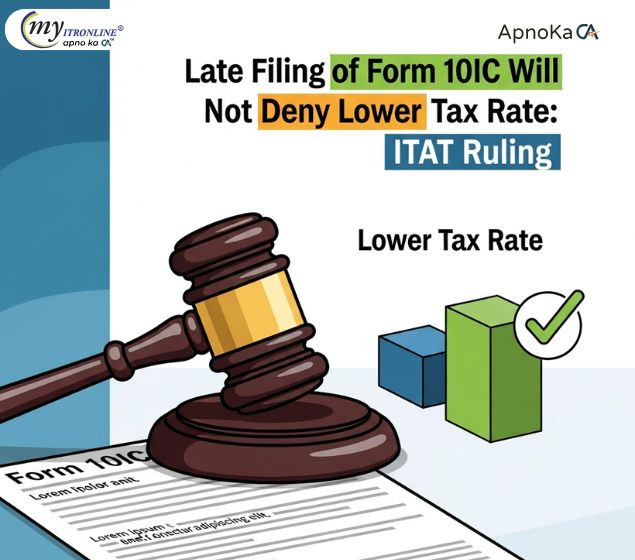
Late Filing of Form 10IC Will Not Deny Lower Tax Rate: ITAT Ruling
Mumbai ITAT has ruled that late filing of Form 10IC should not prevent eligible taxpayers from availing the concessional corporate tax rate under Section 115BAA. The order states that filing Form 10IC is a procedural requirement and the intent to opt for the new tax regime is more important.
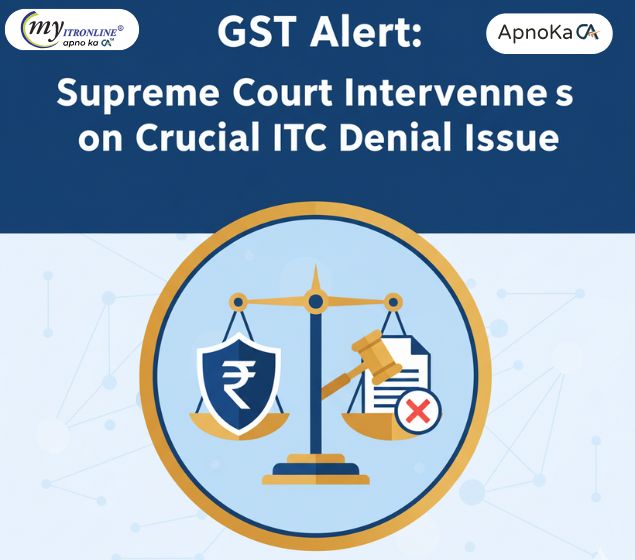
GST Alert: Supreme Court Intervenes on Crucial ITC Denial Issue
The Supreme Court of India, in the interim order of Roshan Sharma v. Deputy Commissioner of Revenue, State Tax & Anr., has issued notice and stayed the High Court's order, agreeing to consider the validity of Input Tax Credit (ITC) denial solely because of the retrospective cancellation of a supplier's GST registration. The case also centrally addresses the violation of natural justice due to the denial of cross-examination and access to crucial evidence like Fastag data.

Seven Years in Jail for Two PAN Cards: A Tax Evasion Warning
A recent court judgment has made it clear that holding more than one PAN card is no longer just a minor issue with a 10,000 fine. In a high-profile case, two individuals were sentenced to seven years in jail for possessing duplicate PANs, one of which was forged. The ruling shows that when a second PAN is linked to fraud or forgery, it becomes a criminal offense under the IPC. Taxpayers with duplicate PANs must act quickly and surrender the extra card to avoid severe legal consequences.

Supreme Court Relief: Buyer Not Liable for Seller’s Default on ITC
The Supreme Court has clarified that a genuine buyer cannot be denied Input Tax Credit (ITC) merely because the seller failed to deposit tax. In the case of Commissioner Trade & Tax Delhi vs. Shanti Kiran India Pvt. Ltd., the Court emphasized that if purchases are genuine, invoices valid, and payments made through banks, ITC should not be denied. This ruling strengthens taxpayer rights and prevents innocent buyers from being penalized for the seller’s default.

Can You Claim Business Expenses During a No-Income Period?
This blog explains whether a business can claim deductions for expenses like rent, salaries, and utilities during a period of zero income. It focuses on Section 37(1) of the Income Tax Act and clarifies the difference between an idle business and one that never started. Includes a checklist to help taxpayers understand eligibility.
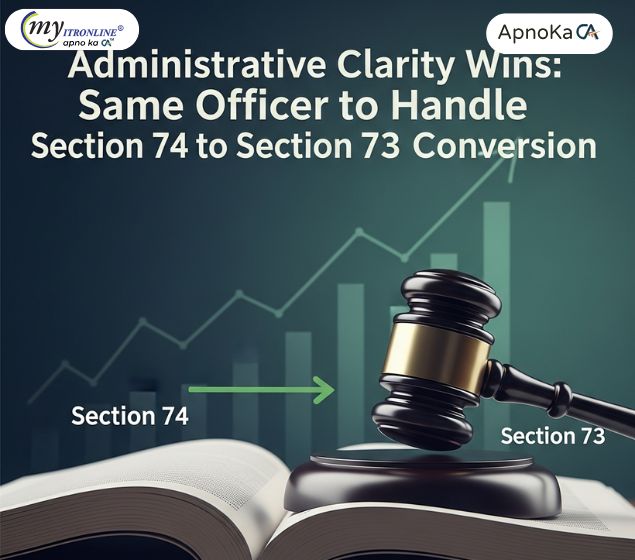
Administrative clarity wins: Same officer to handle Section 74 to Section 73 conversion
The CBIC has clarified that when a GST case originally issued under Section 74 is converted to Section 73 following an appellate or court order, the same original adjudicating officer remains the Proper Officer for re-determination under Section 75(2). This avoids jurisdictional transfers, maintains consistency, and supports timely compliance with the two-year limit under Section 75(3).
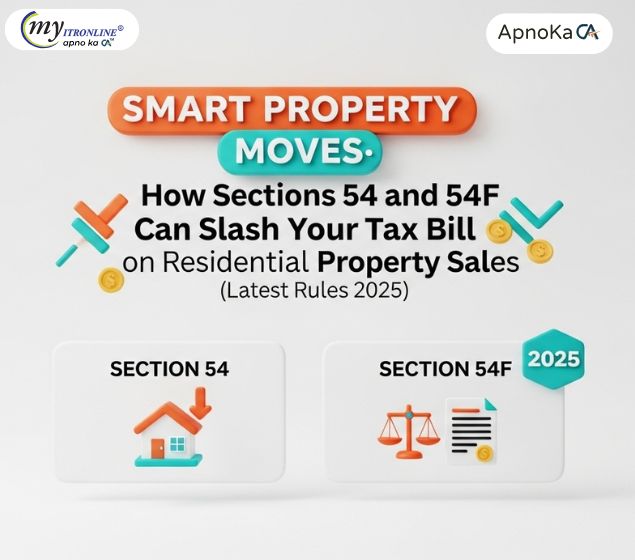
Smart Property Moves: How Sections 54 and 54F Can Slash Your Tax Bill on Residential Property Sales (Latest Rules 2025)
Discover how Sections 54 and 54F of the Indian Income Tax Act provide crucial tax exemptions on Long-Term Capital Gains from property sales. This comprehensive guide covers the latest rules for 2025, including the new ₹10 Crore cap and the two-house option under Section 54, offering practical examples and a step-by-step plan for effective tax planning.
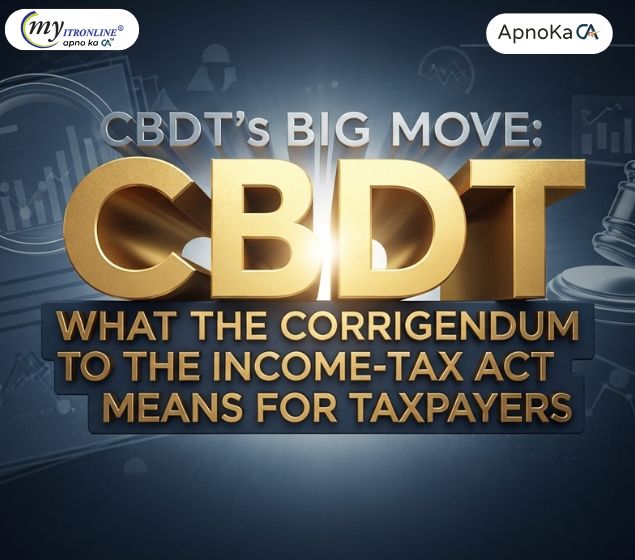
CBDT’s Big Move: Corrective Amendment to the Income-tax Act, 2025
The Central Board of Direct Taxes (CBDT) has issued a significant corrigendum to the recently enacted Income-tax Act, 2025. This blog post delves into the necessity and impact of these corrections, highlighting various typographical, grammatical, and structural fixes. It explains why such legislative "housekeeping" is crucial for legal accuracy and preventing disputes, while also providing context on the broader reforms introduced by the Income-tax Act, 2025, including a simplified structure, unified tax year, and digital-first assessments. The key takeaway emphasizes that while the corrigendum doesn't alter tax policy substance, it ensures the Act is legally sound and ready for smooth implementation, supporting India's goal of a simpler, more transparent tax framework.
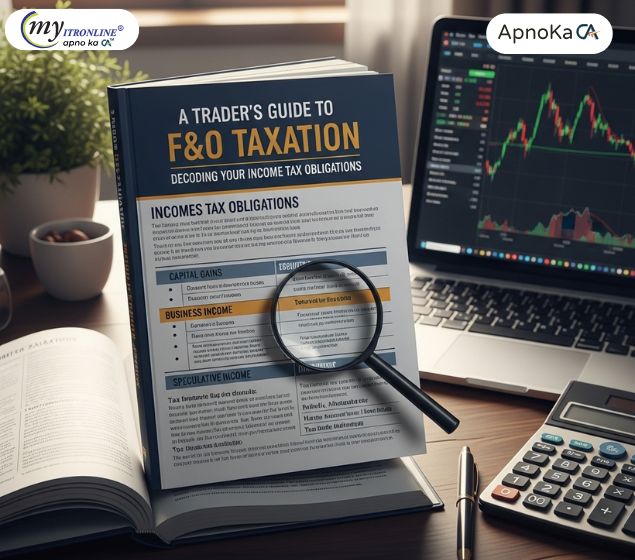
A Trader's Guide to F&O Taxation: Decoding Your Income Tax Obligations
This guide explains the crucial aspects of Futures & Options (F&O) taxation in India. It clarifies that F&O income is categorized as 'Non-Speculative Business Income', detailing how to calculate turnover based on 'absolute profit' plus premiums. The guide outlines various deductible expenses to reduce taxable income and explains when a tax audit is mandatory, especially for losses or specific turnover thresholds. Finally, it covers how to manage F&O losses through set-off and carry-forward, and provides essential information on ITR filing (ITR-3), applicable tax rates, and advance tax payments, ensuring traders stay compliant and manage their finances effectively.
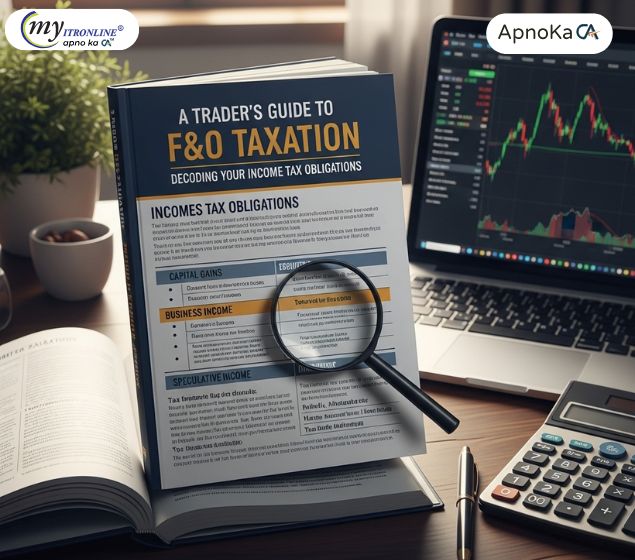
A Trader's Guide to F&O Taxation: Decoding Your Income Tax Obligations
This guide explains the crucial aspects of Futures & Options (F&O) taxation in India. It clarifies that F&O income is categorized as 'Non-Speculative Business Income', detailing how to calculate turnover based on 'absolute profit' plus premiums. The guide outlines various deductible expenses to reduce taxable income and explains when a tax audit is mandatory, especially for losses or specific turnover thresholds. Finally, it covers how to manage F&O losses through set-off and carry-forward, and provides essential information on ITR filing (ITR-3), applicable tax rates, and advance tax payments, ensuring traders stay compliant and manage their finances effectively.

CBDT's Game-Changer: Relaxing Black Money Rules for Taxpayer Relief
This blog details the recent changes by the CBDT in relaxing certain "black money" rules, aiming to provide significant relief to Indian taxpayers. It explains the rationale behind these changes, focusing on the rationalization of penalties, re-evaluation of "undisclosed" status, new opportunities for compliance, and a reduction in harassment and litigation. The article highlights who benefits from these relaxations, positions them within a broader shift towards trust-based taxation, and advises taxpayers on necessary steps to take.
.jpg)
A Gift That Keeps on Taxing? ITAT Delivers Key Ruling on Capital Gains Between Spouses
The Income Tax Appellate Tribunal (ITAT) has clarified that when an asset gifted to a spouse is sold, the resulting capital gains must be taxed in the hands of the gifting spouse, not the recipient. This blog breaks down the mandatory "clubbing of income" provision under Section 64(1)(iv) of the Income Tax Act, explaining its implications for taxpayers, the calculation of gains, and the importance of proper documentation.
